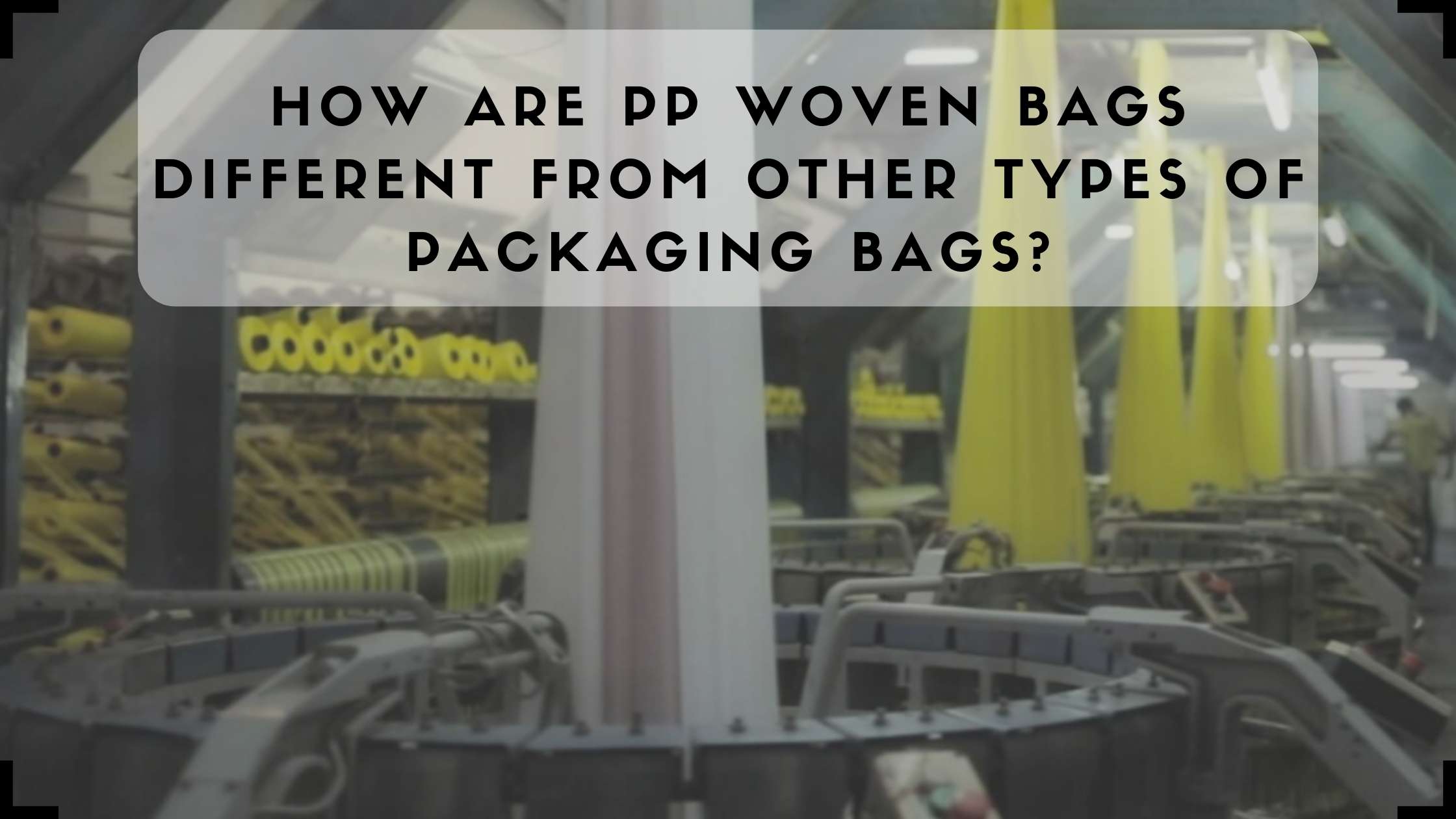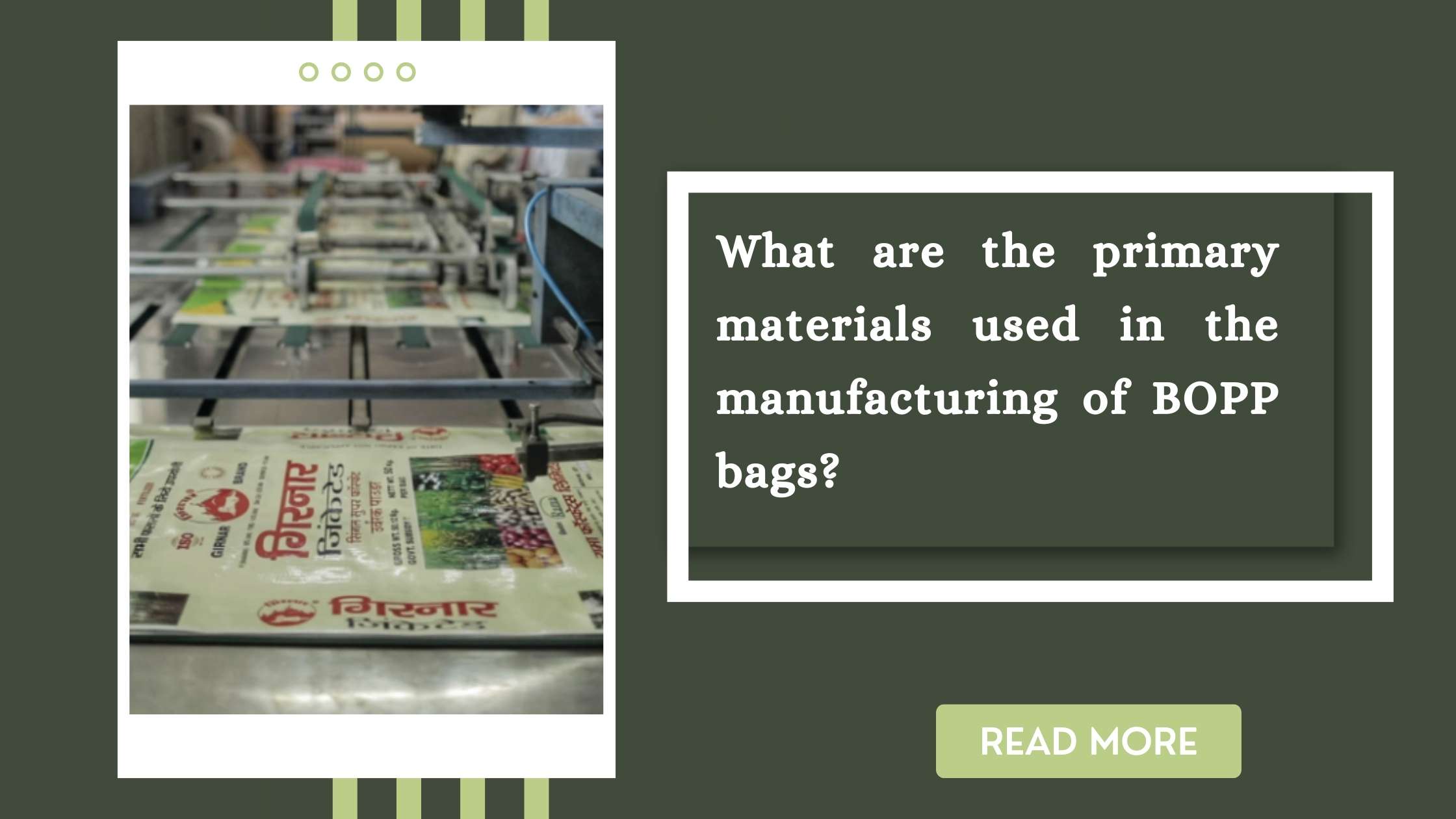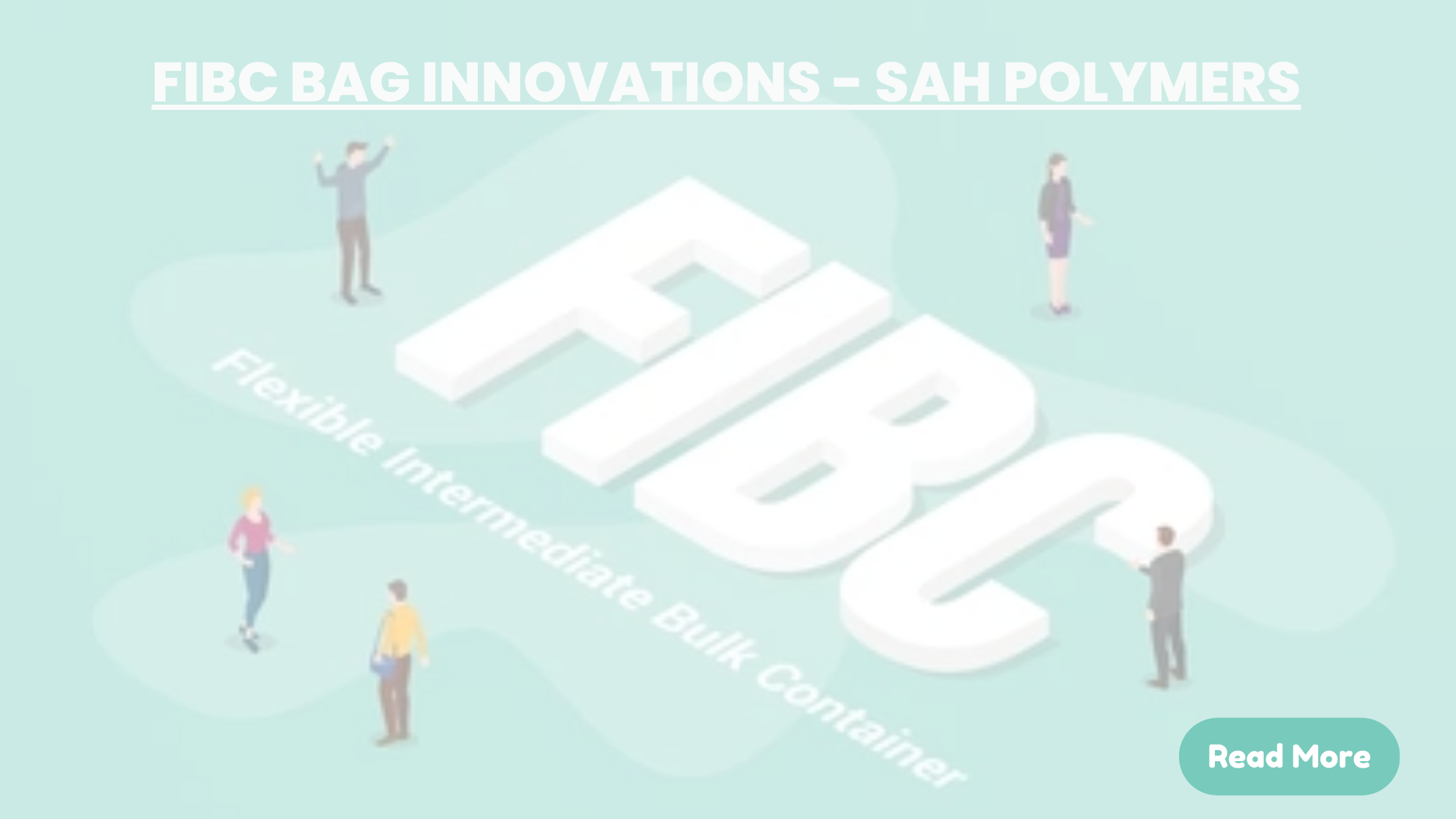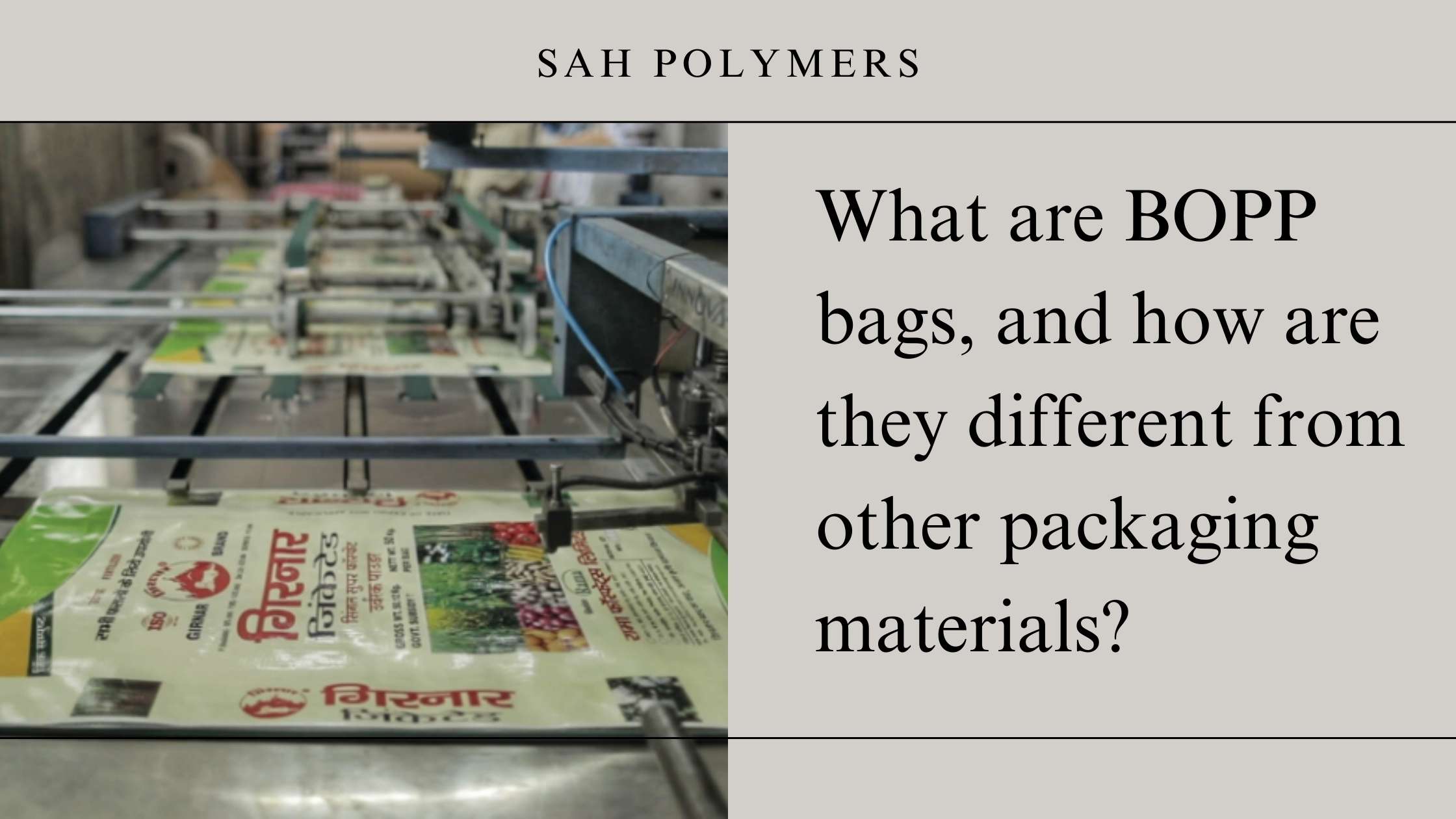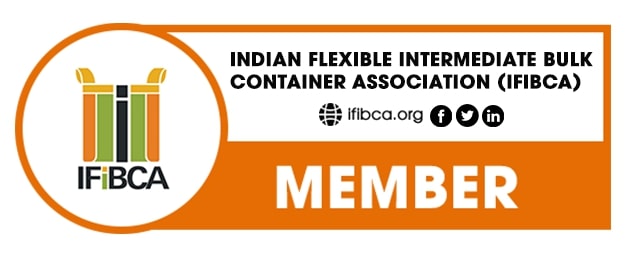What Separates PP Woven Bags from Other Packaging Bags?
Packaging is a critical component in virtually every industry. It serves as more than just a container—it ensures protection, and convenience, and even acts as a branding tool. Among the various packaging solutions available today, PP (Polypropylene) woven bags stand out as a preferred choice for multiple sectors, including agriculture, chemicals, food, and retail. But how do PP woven bags differ from other types of packaging bags? Let’s explore their unique attributes and compare them to other commonly used packaging materials.
1. What Are PP Woven Bags?
PP woven bags are made from polypropylene strips to form a durable and flexible fabric. These bags are often laminated to enhance their strength and functionality. PP woven bags are available in various forms, including:
- Laminated or unlaminated
- Printed or plain
- Gusseted or flat
They are particularly favoured for their ability to carry heavy loads while maintaining their integrity and protecting the contents inside.
2. Key Characteristics of PP Woven Bags
Before diving into comparisons, let’s outline the standout features of PP woven bags:
- Strength and Durability: The woven structure provides high tensile strength, making these bags resistant to tearing.
- Lightweight: Despite their strength, PP woven bags are lightweight, reducing overall transportation costs.
- Moisture Resistance: Laminated PP woven bags offer excellent resistance to moisture, safeguarding the contents.
- Customizability: These bags can be tailored with specific dimensions, printing, and designs to meet diverse needs.
- Eco-Friendliness: PP woven bags are recyclable and can be reused multiple times, making them a sustainable packaging option.
3. How Do PP Woven Bags Compare to Other Packaging Bags?
To understand the unique value of PP woven bags, let’s compare them to other popular types of packaging bags:
a) Plastic Bags
Plastic bags, typically made from polyethene, are ubiquitous in retail and grocery applications. Here’s how they compare:
- Durability: Plastic bags are less durable than PP woven bags and are prone to tearing under heavy loads.
- Environmental Impact: Single-use plastic bags are a significant contributor to environmental pollution, whereas PP woven bags are reusable and recyclable.
- Load Capacity: PP woven bags can handle much heavier loads than standard plastic bags.
- Applications: While plastic bags are primarily used for lightweight retail, PP woven bags cater to industrial and agricultural needs.
b) Jute Bags
Jute bags, made from natural fibres, are often used for packaging agricultural products and as eco-friendly alternatives.
- Material: Jute is a biodegradable material, making it more eco-friendly than PP woven bags. However, PP woven bags are recyclable and more resistant to moisture.
- Strength: PP woven bags offer higher tensile strength, making them better suited for heavy-duty applications.
- Cost: Jute bags are typically more expensive than PP woven bags due to the cost of raw materials and processing.
- Longevity: While jute bags are biodegradable, they are not as durable as PP woven bags for prolonged use.
c) Paper Bags
Paper bags are commonly used in retail and food packaging. Here’s the comparison:
- Strength: Paper bags are not as durable as PP woven bags and can tear easily, especially when exposed to moisture.
- Moisture Resistance: Unlike PP woven bags, paper bags lack moisture resistance, limiting their usability in certain applications.
- Environmental Impact: Paper bags are biodegradable, but their production requires significant water and energy resources, while PP woven bags offer a more sustainable lifecycle due to their reusability.
- Applications: Paper bags are suitable for lightweight packaging, whereas PP woven bags cater to industrial, agricultural, and bulk packaging needs.
d) Non-Woven Bags
Non-woven bags, often made from polypropylene as well, are a popular choice for promotional and retail purposes.
- Fabric Structure: Non-woven bags are made through bonding processes rather than weaving, making them less durable than PP woven bags.
- Applications: Non-woven bags are ideal for lightweight uses like carrying promotional items, while PP woven bags are built for heavy-duty applications.
- Cost: Non-woven bags are typically less expensive but lack the longevity and strength of PP-woven bags.
4. Industries That Prefer PP Woven Bags
The unique features of PP woven bags make them indispensable in certain industries:
- Agriculture: Used for packaging grains, seeds, and fertilizers.
- Chemicals: Ideal for transporting powders, granules, and other bulk chemicals.
- Food: Commonly used for packaging sugar, flour, and rice.
- Construction: Employed for carrying cement, sand, and other building materials.
- Retail: Customized PP woven bags are used for branding and product display.
5. Sustainability: A Key Advantage
While sustainability is a concern for all packaging solutions, PP woven bags strike a balance between functionality and environmental responsibility:
- Reusability: Unlike single-use plastic bags, PP woven bags can be reused multiple times, reducing waste.
- Recyclability: The material can be recycled to produce new products, minimizing environmental impact.
- Energy Efficiency: The production of PP woven bags requires less energy compared to some alternatives, such as paper bags.
6. Why Choose PP Woven Bags?
PP woven bags stand out for their unmatched combination of strength, versatility, and cost-effectiveness. Here’s why they are a preferred choice:
- Cost-Effective Packaging: The durability and reusability of PP woven bags make them a cost-effective solution for businesses.
- Customisable Design: PP woven bags can be tailored to meet specific requirements from branding to dimensions.
- Wide Range of Applications: Their versatility makes them suitable for industries ranging from agriculture to retail.
- Sustainability Goals: As businesses increasingly prioritize sustainable practices, the recyclable nature of PP woven bags aligns with these objectives.
Conclusion
PP woven bags are a versatile and reliable packaging solution that surpasses many other types of bags in durability, functionality, and sustainability. Whether for industrial, agricultural, or retail applications, these bags offer an unparalleled combination of strength, customization, and cost efficiency.
By understanding how PP woven bags differ from other packaging options, businesses can make informed choices that align with their operational needs and environmental goals. If you’re looking for durable, customizable, and eco-friendly packaging, PP woven bags are undoubtedly a superior choice.
For more information about PP woven bags and other packaging solutions, visit Sah Polymers.

